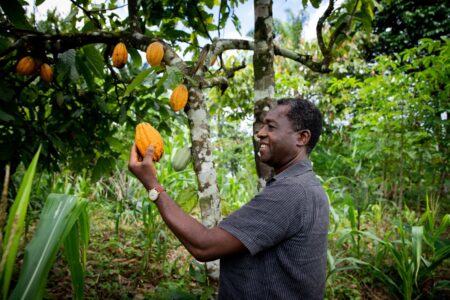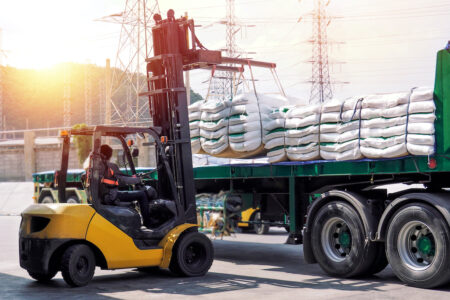Barry Callebaut projects market recovery despite results turbulence

Barry Callebaut has confirmed that despite pandemic-affected conditions recording a 4.3% first quarter dip in sales volume to 560,354 tonnes, and 3.5% drop in revenue to CHF 1.78 billion, the business remains confident in its mid-term projections, reports Neill Barston.
CEO Antoine de Saint-Affrique, noted that although there was still a ‘volatile market’ within the sector, the Swiss-headquartered chocolate and cocoa business remained confident in its outlook, buoyed by noted growth in its emerging territories, US market and gourmet specialties product ranges, as well as outsourcing efficiency moves.
He said: “In still volatile markets, we continue to find new ways of doing business and seize opportunities while maintaining strict cost discipline. We see a gradual recovery, supported by our consistent focus on ‘smart growth’, our broad customer footprint and our strong innovation pipeline. This makes us confident that we can deliver on our mid-term guidance.
Sales volume within its chocolate business was down –1.8% to 447,704 tonnes, which the company said had delivered a comparatively resilient performance considering present conditions within the market, with a 13.1% drop in cocoa, to 112,650 tonnes, owing to the business adapting its strategy to a model of ‘smart growth’.
Significantly, the company (its ISM event stand pictured in January 2020) confirmed that the new Living Income Differential payments (of $400 per tonne of cocoa to support West African farmers), had been consistently applied to the group’s bean purchases in Côte d’Ivoire and Ghana. Sales revenue decreased by 10.9% in local currencies, delivering a result of CHF 424.0 million, which the business said was partially due to lower cocoa bean prices. According to its analysis, there has been an average drop of cocoa prices of 7% year-on-year, which impacted on performance.
However, it highlighted gains (of 6% sales increases to 162,070 tonnes) in North America, reporting key corporate accounts in food manufacturing growing by double-digits, with Gourmet & Specialties’ overall volume growth returning to positive territory. Sales revenue increased by 5.2% in local currencies (–5.6% in CHF) to CHF 471.5 million.
Within its core EMEA region, sales volume of Barry Callebaut in Region EMEA (Europe, Middle East and Africa) decreased by 6.7% to 251,554 tonnes, resulting from several waves of lockdowns amid the pandemic during the past year, but its gourmet business continued to recover.
Meanwhile, in the Asian region, against a high double-digit comparison base in prior year, it achieved steady growth with volume up 1.8% to 34,080 tonnes, significantly outpacing the regional chocolate confectionery market.
The group noted a number of key recent milestones. These included deepening its presence in China in November 2020 with the inauguration of a chocolate academy in Shenzhen, the third in China and the 23rd globally.
Furthermore, In November 2020, La Morella Nuts opened a Global Center of Expertise for nuts in Reus, Spain. The facility aims to grow expertise in taste and texture, sourcing and sustainability, as well as application knowledge.
Within sustainability, the company published its fourth Forever Chocolate progress report, detailing its achievements in making sustainable chocolate the norm by 2025. The Group achieved an –8.1% reduction in carbon emissions in fiscal year 2019/20. It also trained almost 100,000 cocoa farmers on child labor awareness and increased the number of farmers mapped with geographic and socio-economic data to over 180,000, and distributed more than 2.0 million cocoa seedlings and 1.6 million shade trees.
In addition, it also signed the industry’ first Sustainable Coconut Charter, aiming to improve farmer livelihoods, lessen the carbon footprint of coconut production and boost supply to meet rising global demand for coconut products. Furthermore, in November 2020, Barry Callebaut announced an industry first project that will convert cocoa by-products into biochar at one of its European factories. Last month, and for the second year in a row, it was awarded an A- by the Carbon Disclosure Project (CDP) for its 2019 efforts to reduce its carbon footprint.



